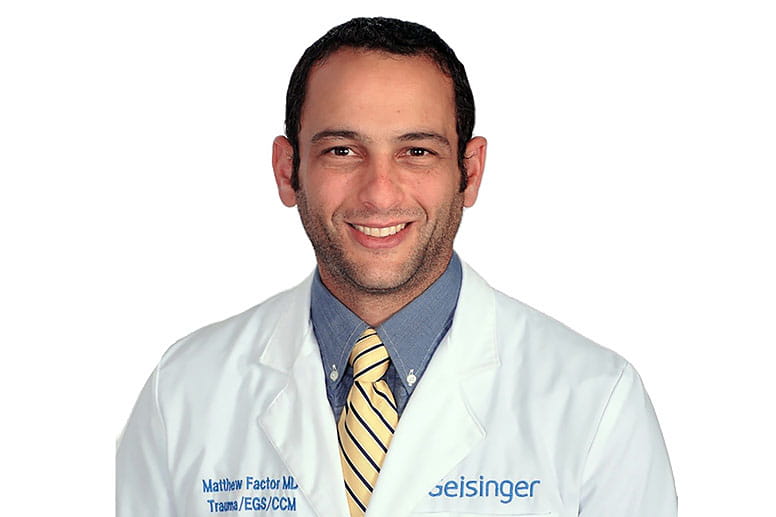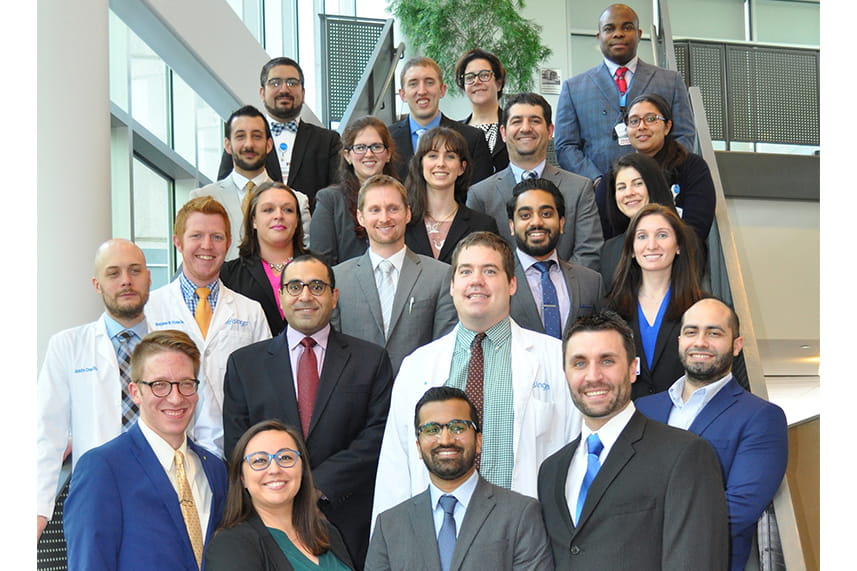
General Surgery Residency – Central
A general surgery residency with Geisinger prepares you to be the well-rounded surgeon patients depend on for routine and emergency procedures.
About us
You want to choose the right residency program — and we’re committed to helping you find it.
Ready for a comprehensive, high-quality and personally rewarding experience to prepare yourself for a career in medicine? The general surgery program at Geisinger awaits.
Program highlights
Our five-year general surgery residency accepts five categorical residents each year. We also offer two one-year R-1 preliminary positions available for residents planning to train in other specialty areas of surgery.
You’ll learn from our team of surgeons who specialize in the following areas:
- General surgery
- Trauma and critical care
- Emergency general surgery
- Surgical oncology and breast surgery
- Vascular surgery
- Minimally invasive and bariatric surgery
- Pediatric surgery
- Colorectal surgery
- Transplant surgery
- Thoracic surgery
- Head and neck surgery
We offer multiple clinical platforms throughout central Pennsylvania. As a resident, you can take advantage of this to enrich your training experience.
You’ll train at Geisinger Medical Center in Danville, a Level 1 trauma center. Geisinger Medical Center is a regional referral center, serving an area of more than 3 million people.
And you’ll also have opportunities to train at other Geisinger facilities, including:
- Geisinger Bloomsburg Hospital
- Geisinger Shamokin Area Community Hospital
- Geisinger Community Medical Center
- Geisinger Wyoming Valley Medical Center
Each year, our team oversees 23,000 outpatient visits and 5,500 surgical procedures.
Your clinical caseload will include a large volume of elective and emergency procedures, ranging from common to complex. Your academic experience is enhanced by weekly didactics, research curriculum, simulation curriculum, well-being curriculum, grand rounds and monthly journal club.
Program report
We’re accredited by the Accreditation Council for Graduate Medical Education (ACGME). Our program has continued to rate above the national mean for all categories, including duty hours, faculty, evaluation, educational content, resources and patient safety and teamwork on the annual ACGME survey.
Grow with Geisinger
You’ll have the chance to participate in patient care and scholarly activities, because the Department of Surgery at Geisinger is committed to educating superior clinical and academic surgeons. Our fully accredited residency program graduates five chief residents each year.
- Five PGY1 residents are accepted into the program each year. Two R-1 preliminary positions and one R-2 preliminary position are available for residents planning to train in various specialty areas of surgery.
- Resident participation in research, either clinical or basic science, is required and supported by the research and education coordinator.
A message from our program director
Dear Colleague:
Thanks for your interest in the General Surgery Residency at Geisinger Medical Center (GMC). Education is one of the fundamental missions of our department. We pride ourselves on our commitment to resident medical education.
Our program was built on operative experience. Daily didactic conferences, comprehensive simulation curriculum (including robust experience in FLS, FES and FRS) and a robust resident research program all come together to give you the best training possible. As a resident, you’ll have access to a large clinical volume and a wide network of community resources.
You’ll be able to experience several different clinical programs in:
- Trauma (GMC is a Level I Regional Trauma Center)
- Emergency general surgery
- Surgical oncology
- Colorectal surgery
- Minimally invasive surgery
- General surgery, including:
- Endoscopy
- Vascular surgery
- Pediatric surgery
- Transplant surgery
- Critical care
Your training combines the best of academic and community surgery, while blending a nurturing environment with a commitment to education. I hope you’ll give this program serious consideration.
Thank you and best wishes,
Matthew Factor, MD
Program Director, General Surgery Residency

Apply today

